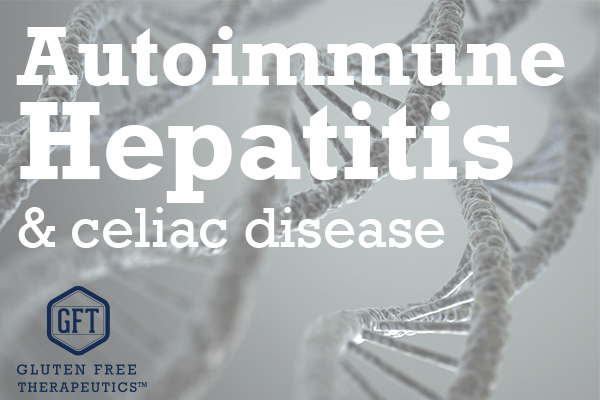
Autoimmune Hepatitis: Celiac Disease Patients Are At An Increased Risk
As many as 9% of patients with autoimmune hepatitis also have CD
As a major organ, the liver performs many essential tasks in digestion, so it may come as no surprise that patients with celiac disease also frequently have liver ailments, including autoimmune hepatitis.

- Discuss unexplained symptoms with your doctor.
In fact, data indicates as many as 9 percent of patients with autoimmune hepatitis also have celiac disease.
As in celiac disease, autoimmune hepatitis involves a malfunction of the immune system that causes disease-fighting antibodies to attack healthy tissue. While CD affects the tissue of the small intestine, in autoimmune hepatitis, the immune system attacks the healthy cells of the liver, causing chronic inflammation and, ultimately, organ damage. Left untreated, many patients with autoimmune hepatitis will eventually require a liver transplant.
To date, the relationship between CD and autoimmune hepatitis remains sketchy, with little indication of whether or not longer exposures to gluten increase the severity of the disease. However, the fact that there is a link between the two is not in dispute; multiple studies have shown that patients who suffer from celiac disease have a significantly higher risk of having other types of autoimmune diseases, including autoimmune hepatitis.
There are two types of autoimmune hepatitis, aptly referred to as type 1 and type 2. Type 1 is by far the more common of the two, affecting patients of any age but most often developing in young adulthood. Type 1 is also much more common among women. Type 2 occurs more often in children. Symptoms include jaundice, or yellowing of the skin and whites of the eyes, dark urine, and tenderness in the area of the liver and flu-like symptoms including fatigue, joint pain and nausea. Diagnosis includes an initial blood test to check for elevations in liver enzymes that can indicate an infection or disease, followed by a biopsy when blood tests indicate disease may be present.
The key to avoiding permanent liver damage is to be proactive in seeking a diagnosis, including talking with your doctor about the need for regular blood work to check for elevations in liver enzymes. Many patients who have both autoimmune hepatitis and celiac disease find chronic liver inflammation resolves once they begin following a gluten-free diet and adhere to it for six to 12 months.
Getting good nutrition is also critical; since both the small intestine and liver play important roles in nutrient absorption, patients with both conditions are at an even greater risk for malnutrition, which can compound the health risks associated with autoimmune disorders. CeliVites were specifically developed for patients with celiac disease, offering better absorption and bioavailability to patients with compromised small intestines so they can receive proper nutritional support. In fact, Gluten Free Therapeutics was founded by a woman whose own child suffers from CD, which means you can feel confident the products are truly designed with the best interest of CD patients in mind.
To learn more about CeliVites and how they were designed to support the unique nutritional needs of CD patients, click here. And to see the complete lineup of CeliVites products, click here.
This original article is made possible by Gluten Free Therapeutics. Our mission is to educate, inform, and provide the most effective nutritional products possible to allow those with celiac disease and serious gluten intolerances to heal their bodies. CeliVites complete line of superior gluten free supplements includes multivitamin/multimineral supplements, iron supplements, and calcium supplements for people living with celiac disease. All CeliVites products are designed to help you heal, restore and rebuild your body, because going gluten free isn’t enough!
Comments ()















